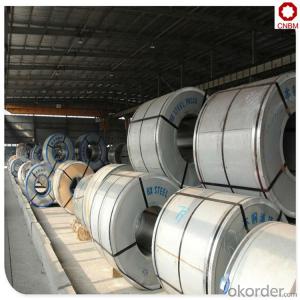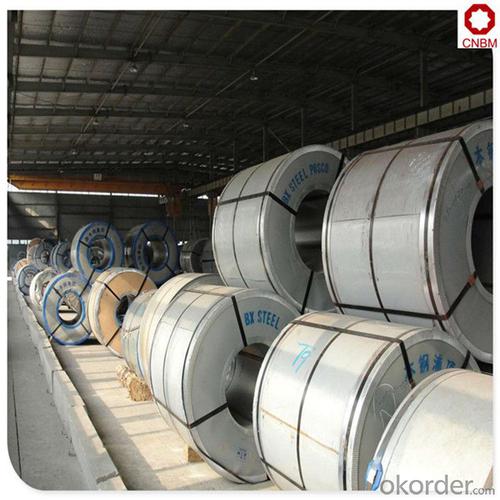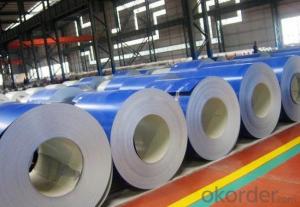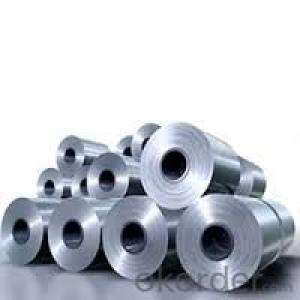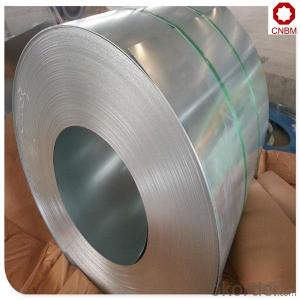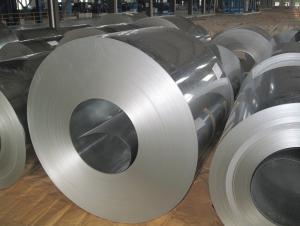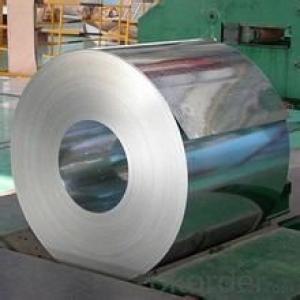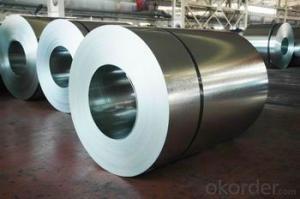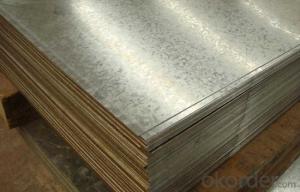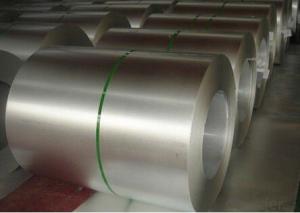Steel price per ton material SGCC hot-dipped galvanized
- Loading Port:
- Nanjing
- Payment Terms:
- TT OR LC
- Min Order Qty:
- 25 m.t.
- Supply Capability:
- 37985 m.t./month
OKorder Service Pledge
OKorder Financial Service
You Might Also Like
Specification
Hot-dip galvanized steel coils are available with a pure zinc coating through the hot-dip galvanizing process. It offers the economy, strength and formability of steel combined with the corrosion resistance of zinc. The hot-dip process is the process by which steel gets coated in layers of zinc to protect against rust. It is especially useful for countless outdoor and industrial applications. Production of cold formed corrugated sheets and profiles for roofing, cladding, decking, tiles, sandwich walls, rainwater protective systems, air conditioning duct as well as electrical appliances and engineering.
Standard and Grade :
Hot-dip galvanized steel coils | ||||
ASTM A653M-06a | EN10327:2004/ 10326:2004 | JISG 3302-2010 | AS-NZS 4534-2006 | |
Commercial quality | CS | DX51D+Z | SGCC | G1+Z |
Structure steel | SS GRADE 230 | S220GD+Z | SGC340 | G250+Z |
SS GRADE 255 | S250GD+Z | SGC400 | G330+Z | |
SS GRADE 275 | S280GD+Z | SGC440 | G350+Z | |
SS GRADE 340 | S320GD+Z | SGC490 | G450+Z | |
SS GRADE550 | S350GD+Z | SGC570 | G550+Z | |
S550GD+Z | G550+Z | |||
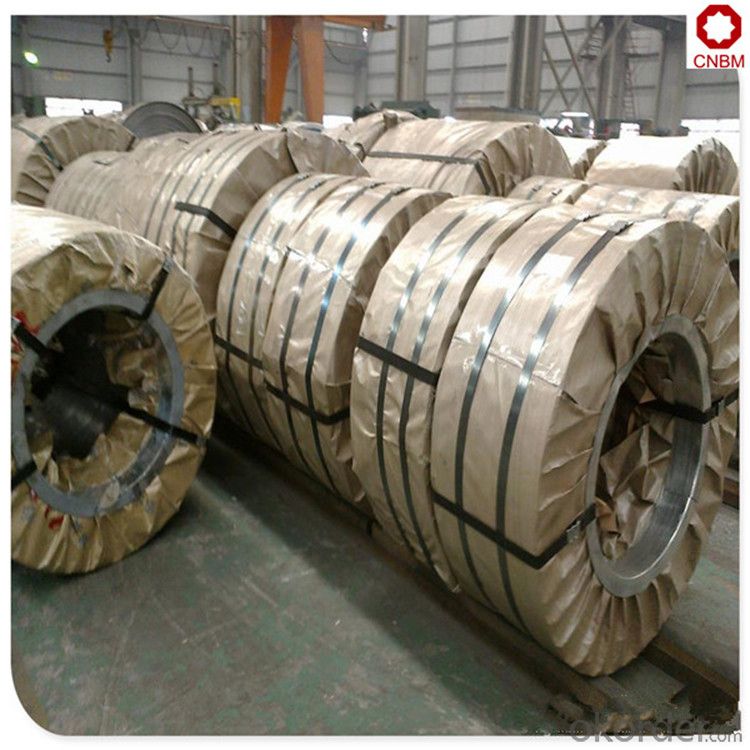
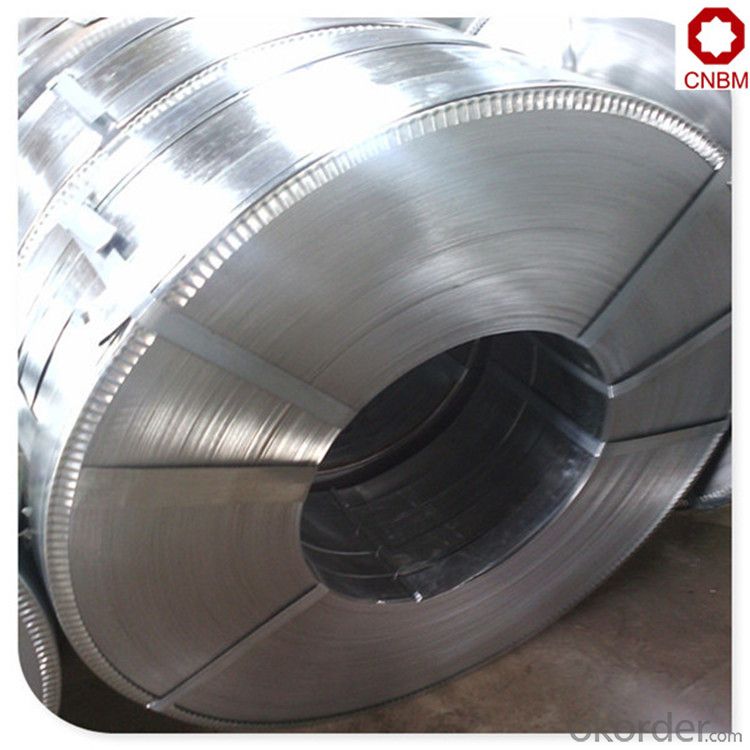
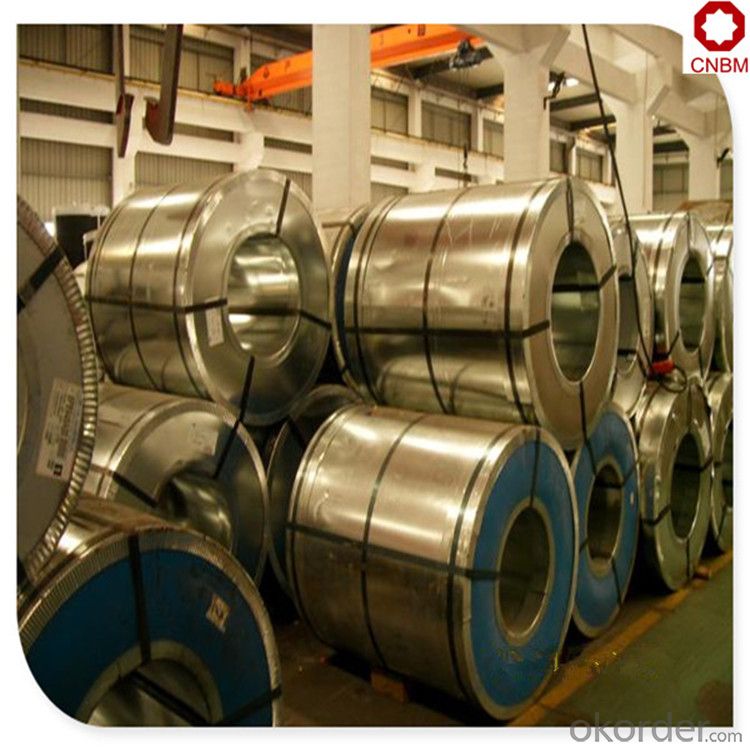
FAQ
Q: How do you guarantee the quality of your product?
A: Every process will be checked by responsible QC which insures every product's quality.
Q: How much is your delivery time?
A: Normally within 30 days of receipt of LC original or prepayment, but mostly according to the specific requirements or the quantity
Q: I need sample, could you support?
A: We can supply you with the sample for free, but the delivery charges will be covered by our customers. For avoiding the misunderstanding, it is appreciated if you can provide the International Express Account for Freight Collect. Also you can have a visit to us, welcome to CNBM!
Company Information
CNBM International Corporation (CNBM International) is the most important trading platform of CNBM Group Corporation, a state-owned company under the direct supervision of State-owned Assets Supervision and Administration Commission of the State Council.
- Q: What are the applications of steel coils?
- Steel coils are utilized across a wide array of industries due to their versatility and durability. The construction industry, in particular, heavily relies on steel coils for structural purposes. These coils can be shaped and molded into different sizes and forms to create essential components like beams, columns, and other structural elements needed in buildings, bridges, and infrastructure projects. Another significant field that benefits from steel coils is the automobile manufacturing industry. Steel coils are instrumental in producing various parts and components of vehicles, including body panels, chassis, frames, and engine parts. The exceptional strength and durability of steel make it an ideal material for ensuring the safety and longevity of automobiles. Moreover, steel coils play a crucial role in the production of household appliances such as refrigerators, washing machines, and stoves. Steel's versatility allows it to be easily molded and shaped into different configurations, making it suitable for various appliance components. In the energy sector, steel coils find extensive use in the manufacturing of power generation equipment and pipelines. Turbines, generators, and other equipment used in power plants are made from steel coils. Additionally, steel coils are employed in constructing pipelines for the transportation of oil, gas, and other fluids. Furthermore, steel coils are widely employed in the fabrication of storage tanks, industrial machinery, and agricultural equipment. They are also utilized in the production of furniture, shelving units, and various metal products. In summary, steel coils play a vital role in numerous industries, including construction, automotive, appliance manufacturing, energy, and others. The strength, durability, and versatility of steel make it an indispensable material for both structural and functional purposes.
- Q: How are steel coils used in the manufacturing of construction scaffolding?
- Steel coils are used in the manufacturing of construction scaffolding as they provide the necessary strength and durability required for the structures. These coils are generally processed and shaped into various components, such as pipes, tubes, and frames, which form the main structure of the scaffolding. The high tensile strength of steel coils ensures that the scaffolding can support heavy loads and provide a safe working platform for workers at construction sites.
- Q: All the steel straps that secure my deck and stair 6x6 posts to the concrete piers have some rust on them. Had bought a rust reducer to spray on them and repaint. As I went to do this I found that one of them is on its last legs, with the steel rusted through and bubbling up all up the sides of the straps. Since this is the end post on a row of 3 deck support posts, I was thinking of removing as much rust as possible, then paint with Rustoleum and cover lower post with something to keep water away from post and pier in the future? Was thinking of something removeable so I could check on it for further rusting. What do you folks with building experience think of this? Thanks.
- Sorry troll, doctors don't give a tetanus shot just because you came into contact with rusty metal. The belief that you need a tetanus shot for stepping on a rusty nail is not quite accurate -- it's not the rust that prompts the shot, it's the fact that the nail was on the ground and dirty.
- Q: How are steel coils used in the manufacturing of automotive body panels?
- Steel coils are used in the manufacturing of automotive body panels because they provide a strong and durable material that can be easily shaped and formed into the desired panel shapes. The coils are unwound and fed into a stamping press where they are cut, shaped, and molded into the specific body panel design. This process ensures that the panels have the necessary strength and structural integrity required for automotive applications.
- Q: How are steel coils used in the production of metal panels?
- Metal panels require steel coils as an essential component in their production. These coils, typically made from high-quality steel, act as the raw material for manufacturing different types of metal panels. To initiate the production process, specialized machinery is used to unroll and flatten the steel coils. This process guarantees a consistent and uniform thickness throughout the sheet. Following this, the flattened steel is cut into the desired length and width, depending on the specific requirements of the metal panel being produced. After the steel has been cut, it undergoes further processing, including cleaning and coating. This step aims to eliminate any impurities and safeguard the steel against corrosion or damage. The coating also enhances the appearance of the metal panel and provides additional durability and longevity. Once the cleaning and coating process is complete, the steel sheets are shaped into the desired form using various techniques such as roll forming or stamping. This enables the creation of diverse metal panels, including roofing panels, wall panels, and decorative panels, among others. The selection of steel coils for metal panel production is based on their strength, durability, and versatility. Steel is renowned for its exceptional structural properties, making it the ideal material for constructing sturdy and long-lasting metal panels. Moreover, steel exhibits high resistance against environmental factors like extreme weather conditions, further enhancing the durability of the metal panels. In conclusion, steel coils play a critical role in the production of metal panels by serving as the raw material and undergoing various processes to ensure quality and durability. The utilization of steel coils enables the production of a wide range of metal panels suitable for various industries and applications.
- Q: What are the key players in the steel coil manufacturing industry?
- Large multinational companies with significant market share and influence dominate the steel coil manufacturing industry. Among the prominent players are: 1. ArcelorMittal, the world's largest steel producer, operates in over 60 countries and offers a diverse product portfolio. 2. Nippon Steel Corporation, a leading Japanese steelmaker, holds a prominent position in the global steel coil manufacturing market, particularly in the automotive and construction sectors. 3. POSCO, based in South Korea, is renowned for its high-quality steel products and advanced technology in steel coil manufacturing. 4. Baosteel Group Corporation, the largest steel manufacturer in China and globally, boasts a vast range of steel products, including steel coils, and excels in research and development capabilities. 5. Thyssenkrupp AG, a German multinational conglomerate, plays a significant role in the steel coil manufacturing industry, focusing on innovation and sustainability across a diverse product range. 6. United States Steel Corporation, a leading American steel producer, holds a crucial position in the steel coil manufacturing industry, particularly in the automotive, construction, and energy sectors. 7. JFE Holdings, Inc., a Japanese steel conglomerate, is a key player in the steel coil manufacturing industry, known for its customer-oriented approach and high-quality steel products. These companies represent a fraction of the key players in the steel coil manufacturing industry, as numerous others contribute to this sector. The industry is highly competitive, and these companies consistently strive to innovate, enhance efficiency, and meet the evolving demands of the market.
- Q: I saw this really pretty ring online and it was made of steel. Is this a good ring? If I were to wash my hands with it on, would it rust and turn my finger green?
- Steel rust is brown not green! Very much expected to be of one type of stainless steel, and you should have no problem.
- Q: What are the safety regulations for steel coil production facilities?
- The safety regulations for steel coil production facilities differ depending on the specific country or region. However, these facilities typically implement some common safety measures. One primary safety regulation is the proper training and education of employees. All workers in steel coil production facilities must undergo training on potential hazards and the correct safety procedures to follow. This includes training on handling heavy machinery, operating cranes or forklifts, and understanding the risks associated with working in a high-temperature environment. Maintenance and inspection of equipment are also important safety regulations. Regular inspections should be carried out to ensure that machinery and equipment are in good working condition and do not pose any safety risks. Moreover, maintenance procedures should be implemented to promptly address any issues or malfunctions. Fire safety is a crucial aspect of safety regulations in steel coil production facilities. Fire prevention measures like fire alarms, sprinkler systems, and fire extinguishers should be installed. Regular fire drills should also be conducted to ensure that all employees are familiar with evacuation procedures and can respond swiftly and effectively in case of a fire emergency. The use of personal protective equipment (PPE) is another vital safety requirement in steel coil production facilities. Employees must be provided with appropriate PPE such as safety glasses, helmets, gloves, and steel-toed boots to protect them from potential hazards like falling objects, sharp edges, and high temperatures. Additionally, safety regulations often necessitate the implementation of safety barriers and guards around machinery and equipment to prevent accidents and injuries. This includes safety gates, railings, and protective covers that restrict access to hazardous areas and prevent unauthorized entry. Regular safety audits and inspections should be conducted by relevant authorities or safety professionals to ensure compliance with safety regulations. Companies should also foster a culture of safety by encouraging open communication about safety concerns, providing safety training and refresher courses, and rewarding employees for adhering to safety protocols. It is important to note that safety regulations may vary across jurisdictions, and it is advisable to consult the specific regulations applicable in the country or region where the steel coil production facility is located.
- Q: What are the common thickness tolerances for steel coils?
- The common thickness tolerances for steel coils usually range from +/- 0.001 to +/- 0.005 inches, depending on the specific industry standards and customer requirements.
- Q: How do steel coils contribute to the construction equipment industry?
- The construction equipment industry relies heavily on steel coils as they are vital for manufacturing various construction machinery and equipment. These coils, made from high-quality steel, are crucial components used in the fabrication of a wide range of construction equipment, including cranes, bulldozers, excavators, loaders, and forklifts. The main contribution of steel coils to the construction equipment industry lies in their structural strength and durability. Steel is renowned for its exceptional mechanical properties, such as high tensile strength, toughness, and resistance to wear and corrosion. These properties make it an ideal material for constructing heavy-duty machinery capable of withstanding the demanding conditions of construction sites. Steel coils are employed in the production of the structural components of construction equipment, such as chassis, frames, booms, buckets, and attachments. These components need to be sturdy and able to endure heavy loads, impacts, and continuous use. Steel coils provide the necessary strength and reliability to ensure the long-lasting performance of construction equipment. Moreover, steel coils are also used to manufacture specialized parts and accessories for construction machinery. These include hydraulic systems, gears, shafts, bearings, and fasteners. These components are essential for the proper functioning and efficiency of construction equipment, and steel coils provide the high-quality material required for their production. In addition to their mechanical properties, steel coils also contribute to the construction equipment industry through their versatility and customization options. Steel can be easily shaped, cut, welded, and formed into various sizes and shapes, allowing manufacturers to create equipment with specific designs and functionalities tailored to meet the diverse needs of construction projects. Overall, steel coils are indispensable in the construction equipment industry as they serve as the foundation for robust and reliable machinery. Their strength, durability, and versatility make them an essential raw material for manufacturing construction equipment that can withstand the challenges of construction sites and ensure the safety and efficiency of construction projects.
Send your message to us
Steel price per ton material SGCC hot-dipped galvanized
- Loading Port:
- Nanjing
- Payment Terms:
- TT OR LC
- Min Order Qty:
- 25 m.t.
- Supply Capability:
- 37985 m.t./month
OKorder Service Pledge
OKorder Financial Service
Similar products
Hot products
Hot Searches
Related keywords
